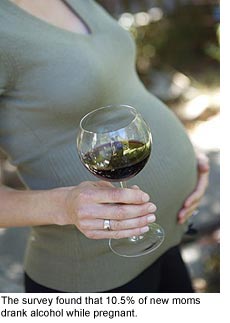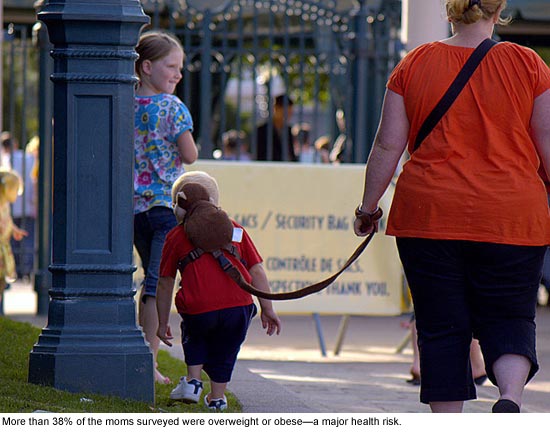It’s not easy being Mom
May 5, 2011
Mother’s Day means flowers, candy, hugs and a full court press at Hallmark. But for many new moms in Los Angeles, becoming a mother is no brunch at the Ritz.
Data from the latest “Los Angeles Mommy and Baby Survey,” published by the county Department of Public Health earlier this year, show that despite some positive news on breast-feeding, prenatal care and post-delivery checkups, there’s trouble in Momville.
From depression to dental woes, unplanned pregnancies to prenatal obesity, the survey offers what can only be termed a mother lode of insights into new motherhood in L.A.
First, the good news. “Over 90% of the women in L.A. County receive prenatal care, which is spectacular compared to other parts of the country,” said Dr. Diana Ramos, the county’s director of reproductive health, who noted that Medi-Cal has helped to ensure that low-income women in California are covered during pregnancy. Also, 85.2% of the mothers surveyed had breastfed their babies and 98.3% took their newborn in for a well-baby check-up.
Now for the not-so-good.
 The countywide survey, which canvassed 6,264 new mothers who gave birth in 2007, found that 58.1% of new mothers surveyed said they were at least a little depressed after giving birth, and 19.9% said they had been depressed for a period of two weeks or more during their pregnancies.
The countywide survey, which canvassed 6,264 new mothers who gave birth in 2007, found that 58.1% of new mothers surveyed said they were at least a little depressed after giving birth, and 19.9% said they had been depressed for a period of two weeks or more during their pregnancies.
“One of the things that is quite startling is the number of women who experience depression,” said Cynthia Harding, director of Maternal, Child and Adolescent Health Programs for the public health department, which produced the survey.
“It says that we need to provide more social support,” Harding said. “Pregnancy is a time of joy, and if you’re not feeling the joy, you might feel ‘What’s wrong with me?’”
To that end, a multifaceted push is on to increase awareness of maternal depression, reduce the stigma and train health care and other providers to better recognize the symptoms. This brochure is being distributed this month to new mothers in all hospitals across the county.
“It’s a very, very vulnerable time,” said Caron Post, director of the L.A. County Perinatal Mental Health Task Force, which is spearheading the “Speak Up When You’re Down” campaign with the Department of Public Health. “Mothers put on a happy face. It’s taboo to be depressed and be a mother.”
Obesity is also a big concern.
More than 38% of the mothers surveyed were overweight or obese before getting pregnant, and more than a quarter said they didn’t exercise during pregnancy.
“If there was any one call to action, it would be obesity. It’s one of the big risk factors in maternal mortality,” Dr. Ramos said. “Yes, we all know there’s an obesity issue. But I don’t think we’re doing enough to give directive advice [on keeping weight down] to reproductive age women.”
There’s also room for improvement when it comes to pre-pregnancy preparedness.
For instance, 53.4% of the new moms surveyed said their pregnancies had been unwanted or “mistimed,” and 34.1% said their husband or partner shared those views.
 What’s more, 70.7% received no preconception health counseling and 54.4% didn’t know about the importance of taking folic acid supplements before and during pregnancy. And 9.6% smoked in the six months before becoming pregnant.
What’s more, 70.7% received no preconception health counseling and 54.4% didn’t know about the importance of taking folic acid supplements before and during pregnancy. And 9.6% smoked in the six months before becoming pregnant.
Not exercising during pregnancy was by far the most common “risk behavior,” reported by 28.6% of those surveyed. But other risks showed up, too, including drinking alcohol (10.5%), exposure to second-hand smoke (6.3%), smoking (2.6%) and using illegal drugs (2.4%).
In the 3rd District, women who participated in the written survey reported high rates of breastfeeding and well-baby check-ups. They were the least likely to have been overweight prior to pregnancy—and the most likely to have received fertility treatment.
They also were the likeliest to drink alcohol during their pregnancies, 12.4% compared to 10.5% countywide. Any level of drinking during pregnancy is of concern to public health officials. “It may be two or three weeks before you realize you’re pregnant. If you want to get pregnant, stop drinking ahead of time,” said county maternal programs director Harding.
Another painful finding: dental distress.
Nearly 19% of those surveyed (21% in the 3rd District) said they’d experienced periodontal disease during pregnancy. Many women can’t find a dentist who’ll treat them, especially during pregnancy, while others are fearful and put off going until the pain is unbearable, advocates said. In either case, tooth and gum infections can present a serious medical risk for mother and fetus when bacteria enter the bloodstream.
The survey is part of the Los Angeles Mommy and Baby Project, which was launched following an increase in infant deaths in the Antelope Valley, mostly among African Americans, from 1999 to 2002. After an initial 2004 pilot survey in the Antelope Valley, the project was expanded countywide in 2005.
A new survey of women who gave birth in 2010 is currently underway, and is expected to capture stresses inflicted by the current economic downturn.
“We are seeing more and more patients who have lost their health insurance but don’t qualify for any low-income programs,” said Debra Farmer, president and CEO of the Westside Family Health Center in Santa Monica.
Even among the 2007 moms, 36.7% said they had no insurance, 22.4% reported stress over unpaid bills, 13.8% were stressed out over job loss experienced by their husband or partner, and 11.6% over losing their own job.
There are concerns that as California moves to implement health reform—and to cope with a drastic budget situation—that cutbacks will diminish the level of maternity services available to those who need them most.
“I think a lot of what has been there in the past is eroding because of the economic situation and the state cutbacks,” said Lynn Kersey, executive director of Los Angeles-based Maternal and Child Health Access. “What’s going to happen during health reform is of extreme interest.”














 405 bridge work causes a stink
405 bridge work causes a stink

